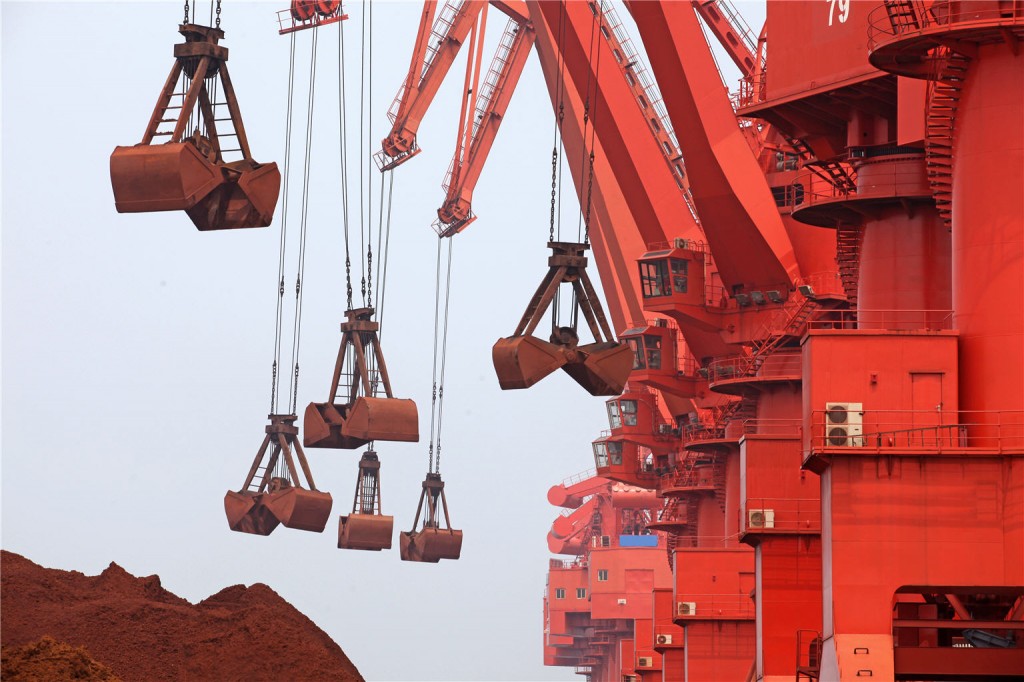China iron ore falls most in 4 weeks amid Vale optimism, demand concerns

Chinese iron ore futures fell over 4% on Friday, their most in four weeks, and clocked their second consecutive weekly loss, after Brazil announced a rebound in exports of the steelmaking material in July.
Worries about demand for steel products also weighed on iron ore, after U.S. President Donald Trump vowed to slap an additional 10% tariff on $300 billion of Chinese imports from Sept. 1.
Worries about a global shortage pushed Dalian iron ore to record highs this year
The most-traded iron ore on the Dalian Commodity Exchange , with January 2020 expiry, slumped as much as 4.8% to 720.50 yuan ($103.91) a tonne. It closed 4.2% lower at 724.50 yuan, posting the sharpest one-day fall since July 5.
Brazil’s iron ore exports rose 16.6% in July from the previous month to 34.3 million tonnes, the highest in nine months, as Vale resumed production at its largest mine, official data showed on Thursday.
Worries about a global iron ore shortage as a result of Vale mine shutdowns for safety checks following a deadly tailings dam disaster in January pushed Dalian iron ore to record highs this year.
Spot prices of ores for delivery to China, the world’s top steel producer and consumer, hit their highest in more than five years, with recent supply outages in Australia after a cyclone hampered mining operations adding to concerns.
“Vale said that 20mt (million tonnes) of the 50mt of capacity that is still offline will be gradually restarted by the end of the year,” ANZ Research said in a note. “The remaining 30mt will take two to three years to get back online.”
Vale, the world’s largest iron ore exporter, also expects to resume production at Samarco, a joint venture with BHP that has been closed since 2015, in the second half of next year.
Fundamentals
Trump’s latest tariff threat against China “significantly raises the intensity of the trade war with negative implications for world growth, global manufacturing and business investment,” said Bill Evans, chief economist at Westpac Banking Corp.
Benchmark spot 62% iron ore for delivery to China <SH-CCN-IRNOR62> fell 2.5% to $118 a tonne on Thursday, based on data tracked by SteelHome consultancy. It hit $126.50 on July 3, the highest since January 2014.
Anglo-Australian miner Rio Tinto on Thursday maintained its forecast for annual shipments of 320 million to 330 million tonnes.
Amid rising steel inventory in China and seasonally weak domestic demand for the building and manufacturing material, steel futures hit their lowest in six weeks.
The most-active construction steel rebar contract on the Shanghai Futures Exchange, for October 2019 delivery, fell 1.6% to 3,816 yuan a tonne, its weakest finish since June 21.
Hot-rolled steel, used in cars and home appliances, slipped 1.5% to 3,746 yuan a tonne, its lowest close also since June 21.
Dalian coke slid by the 6% daily limit to 2,000 yuan a tonne. It closed down 3.6% at 2,051 yuan.
Coking coal, however, ended up 0.7% at 1,401.50 yuan a tonne.
($1 = 6.9338 yuan)
(By Enrico dela Cruz; Editing by Richard Pullin and Subhranshu Sahu)
{{ commodity.name }}
{{ post.title }}
{{ post.date }}




Comments